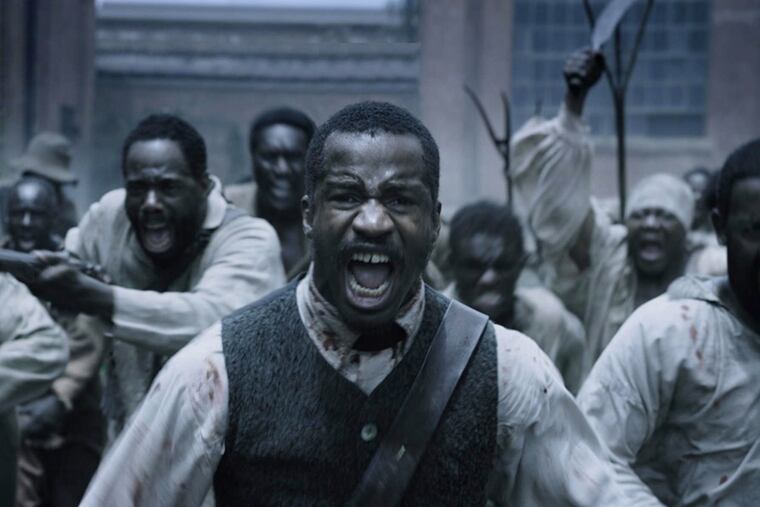Six Sundance movies to pay attention to
PARK CITY, Utah - As the controversy over the Oscars' lack of diversity raged, a film about a bloody slave revolt set a record for the biggest sale in Sundance Film Festival history. Nate Parker's The Birth of a Nation, which he directed, cowrote, and sta

PARK CITY, Utah - As the controversy over the Oscars' lack of diversity raged, a film about a bloody slave revolt set a record for the biggest sale in Sundance Film Festival history. Nate Parker's The Birth of a Nation, which he directed, cowrote, and stars in as Nat Turner, the leader of an 1831 rebellion against Virginia slaveowners, was acquired by Fox Searchlight after an all-night bidding war for a reported $17.5 million, obliterating the $10.5 million Sundance record set by Little Miss Sunshine in 2006.
With Netflix and the newly invigorated Amazon Studios feeding the fire, the acquisitions climate at Sundance was hotter than it's been in years: Amazon laid down a reported $10 million for Manchester by the Sea, Kenneth Lonergan's drama about lingering grief in a coastal Massachusetts town, and by the end of the festival week had spent $5 million more on other movies. Netflix paid upwards of $12 million for three movies.
Record-setting or not, Searchlight's wasn't the highest bid for The Birth of a Nation, which pointedly appropriates the title from the century-old D.W. Griffith epic that approvingly chronicles the rise of the Ku Klux Klan. But whereas Netflix and Amazon put movies like Beasts of No Nation and Chi-Raq in theaters last year, they failed to secure nominations for their non-white stars and directors, so it's likely Searchlight's promise of an awards-season release and their history of successful campaigns - Little Miss Sunshine, also a Searchlight release, went on to win two Oscars - tipped the scales in its favor.
Although Parker, best known for starring in the romantic drama Beyond the Lights, has called Birth "a black Braveheart," his rough-hewn directorial debut is less a traditional awards movie than Ava DuVernay's Selma from 2014, or even the Philadelphia-shot Creed from last year. The movie's substantial power is lessened by significant lapses in judgment - the glowing figures who appear to Turner in religious visions tilt perilously close to kitsch - and the movie's failure to delineate characters beyond Turner and his white owner (The Social Network's Armie Hammer) lessens its dramatic scope.
But when Parker fills the screen with the faces of young slaves, framed so tightly that their 19th-century clothing drops out of sight, you're no longer watching a period piece or dead history, but looking at the faces of young black men in 2016, demanding their humanity be fully recognized. It's far from a perfect film, but it fills an aching need in society and the movie industry both, and should find a substantial audience waiting for it in the fall.
Lonergan's Manchester by the Sea is a small movie in every way. It follows a Boston maintenance man (Casey Affleck) who returns home to care for his nephew (Lucas Hedges) after his brother's death. Like Lonergan's Margaret, it's a movie of such precision and generosity it feels as though it might contain the world. Even characters who hold the screen for only a few seconds feel as though they arrive with their lives intact, their stories known to them, if not to us. It's far funnier than a movie suffused with so much anguish has any right to be, and full of reminders that the absurdities of the world don't stop just because you're in pain.
Not every Sundance film has such grand ambitions: Hunt for the Wilderpeople and Southside With You were low-key charmers whose modest goals are part of their appeal. Hunt, the last movie directed by New Zealand's Taika Waititi (What We Do in the Shadows) before he hops aboard the Marvel train with Thor: Ragnarok, is a buddy comedy about a teenage boy (Julian Dennison) and his crotchety foster dad (Sam Neill) who spend months living off the grid rather than submit to the authorities.
Southside follows a couple of Chicago lawyers on their first date, the trick being that they're Barack and the future Michelle Obama. The latter has more on its mind, as the sometimes pointed conversations between the two not-yet-lovebirds encompass issues of social responsibility and institutional prejudice, not to mention a fierce debate over the best Stevie Wonder album. (Michelle says Talking Book, Barack thinks Innervisions.) But at heart, they're simple reminders of the pleasures of moviegoing.
Watching is less innocent in Christine and Kate Plays Christine, both of which focus on the on-air suicide of Sarasota, Fla., TV reporter Christine Chubbuck that inspired Paddy Chayefsky to create Network's Howard Beale. With a tightly wound, almost robotic Rebecca Hall in the title role, Antonio Campos' Christine is like Todd Haynes' Superstar: The Karen Carpenter Story performed by humans instead of Barbie dolls, a glib denunciation of Nixon-era conformity. Chubbuck's suicide is preceded by a news item in which she promises to bring viewers "the latest in blood and guts." It registers as a doomed protest against media sensationalism.
Robert Greene's Kate Plays Christine, with Kate Lyn Sheil in the title role(s), is a hybrid documentary that questions whether we return to such historical horrors to understand them or simply to gawk. As Sheil prepares to play Chubbuck, she rails at the limits of her understanding, and the movie rails, too, questioning whether an act as personal as suicide can be assigned symbolic value without losing the person at its core. Provoking thought and discomfort in equal proportions, often at the same time, it forces us to question why we turn to screens for answers, and whether anything they show us can help us see the world.